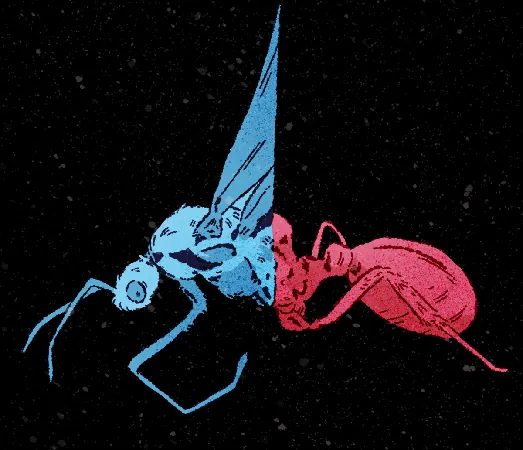
Revolutionary Discovery: Ants That Defy Nature with Xenoparity!
2025-09-22
Author: Wei
Meet the Iberian Harvester Ants: Nature's Game Changers
In a groundbreaking revelation, scientists have uncovered a stunning behavior among Iberian harvester ants (Messor ibericus), challenging our conventional understanding of species and reproduction. These ants have been observed to produce offspring using sperm from two different species—an astonishing phenomenon dubbed ‘xenoparity,’ or ‘foreign birth.’
The Science of Ant Reproduction: More Complex Than You Think
While ant reproductive strategies often boggle the mind—such as parthenogenesis, where females can reproduce without males—the M. ibericus case stretches the limits even further. This ant species has developed a unique method of hybridization, creating worker ants that combine DNA from both M. ibericus and its distant relative, Messor Structor.
A Most Unexpected Pairing: Nature's Long-Distance Romance
The M. ibericus and M. structor species diverged from a shared ancestor over five million years ago, with some colonies now situated hundreds of miles apart. Astonishingly, queens of M. ibericus seemingly rely on the sperm of M. structor to raise their workers. They've evolved a remarkable ability to clone these foreign drones, utilizing stored sperm to lay eggs that only carry the M. structor lineage.
Stronger, Healthier Hybrids: The Ant Revolution
This reproductive strategy results in a rising population of hybrid workers that are not just unique but also stronger and healthier than their purebred counterparts. In each reproductive cycle, the M. ibericus queen produces a mix of worker ants—some of her own species and others from M. structor—creating a robust colony.
The Pheromone Puzzle: A New Identity Crisis?
Interestingly, male M. structor raised within M. ibericus colonies often face rejection by their wild counterparts, likely due to differing pheromonal signatures. This phenomenon hints at another layer of identity that challenges our understanding of genetics and species classification.
The Ongoing Evolution of Science
This discovery not only reshapes our perspectives on ant reproduction but also signals a shift in biological principles. As researchers continue to uncover the mysteries of M. ibericus and M. structor, we are reminded that nature is full of surprises, and perhaps we are just scratching the surface of what’s to come in the world of evolutionary science.
Stay tuned, as future studies may unveil even more shocking revelations about these remarkable creatures!




 Brasil (PT)
Brasil (PT)
 Canada (EN)
Canada (EN)
 Chile (ES)
Chile (ES)
 Česko (CS)
Česko (CS)
 대한민국 (KO)
대한민국 (KO)
 España (ES)
España (ES)
 France (FR)
France (FR)
 Hong Kong (EN)
Hong Kong (EN)
 Italia (IT)
Italia (IT)
 日本 (JA)
日本 (JA)
 Magyarország (HU)
Magyarország (HU)
 Norge (NO)
Norge (NO)
 Polska (PL)
Polska (PL)
 Schweiz (DE)
Schweiz (DE)
 Singapore (EN)
Singapore (EN)
 Sverige (SV)
Sverige (SV)
 Suomi (FI)
Suomi (FI)
 Türkiye (TR)
Türkiye (TR)
 الإمارات العربية المتحدة (AR)
الإمارات العربية المتحدة (AR)